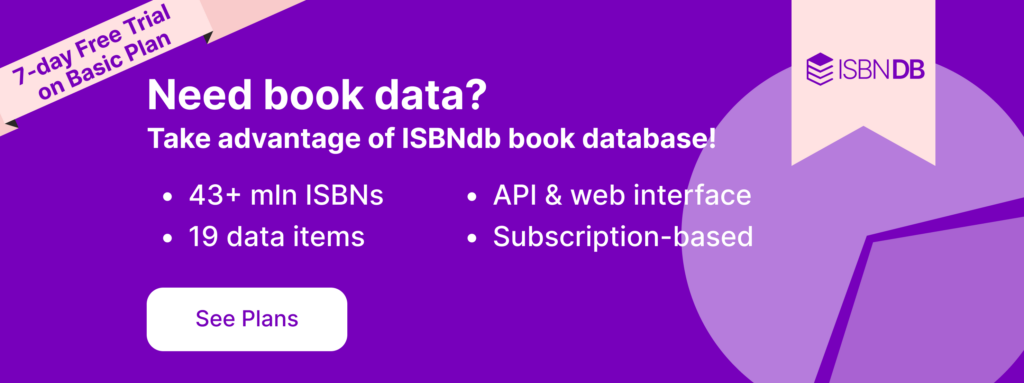
In today’s digital world, book metadata plays a crucial role in the discoverability, sales, and overall success of your books. Whether you’re an author, publisher, or bookseller, understanding the significance of book metadata and how to use it effectively can make a huge difference for your business.
In this article, we’re going to explore the various aspects of book metadata and how ISBNdb, a leading book data provider, can cover your metadata needs.
- What Is Book Metadata And Why Is It Crucial?
- Book Metadata Examples
- Are there any Book Metadata Standards?
- How is Book Metadata Distributed?
- Where Do You Get Metadata From?
What Is Book Metadata And Why Is It Crucial?
Book metadata refers to the descriptive information about a book, including its title, author, publisher, publication date, genre, ISBN, and other relevant details. This data is used by search engines, online retailers, and library catalogs to help readers find, identify, and purchase books that match their interests.
Without metadata, a published book will not be discoverable to readers and is unlikely to sell well. Effective metadata can prevent a book from being overlooked and increase its chances of success in the market.
“Good metadata is the difference between a book being discovered or remaining hidden.”
Angela Bole, CEO of the publishing technology company Firebrand Group.
Metadata encompasses:
- Title
- ISBN
- Author
- Book Media/Format
- Publication Status
- BISAC Codes (explain the book genre)
- Main Description or Brief Description
- Publication Date and/or On-Sale Date
- Sales Territory
- Page Count (for print and ebooks)
- Total Runtime (for audiobooks)
- Spine Size
- Book Weight
- Trim Size
A book may sell better if its metadata includes:
- Table of Contents
- Excerpt
- Citations (professional reviews and endorsements)
- Keywords
- Title Relationships (comp titles, the author’s other books)
- Age & Grade Ranges
Book Metadata Examples
The following examples of book metadata are from Amazon and Powell’s:
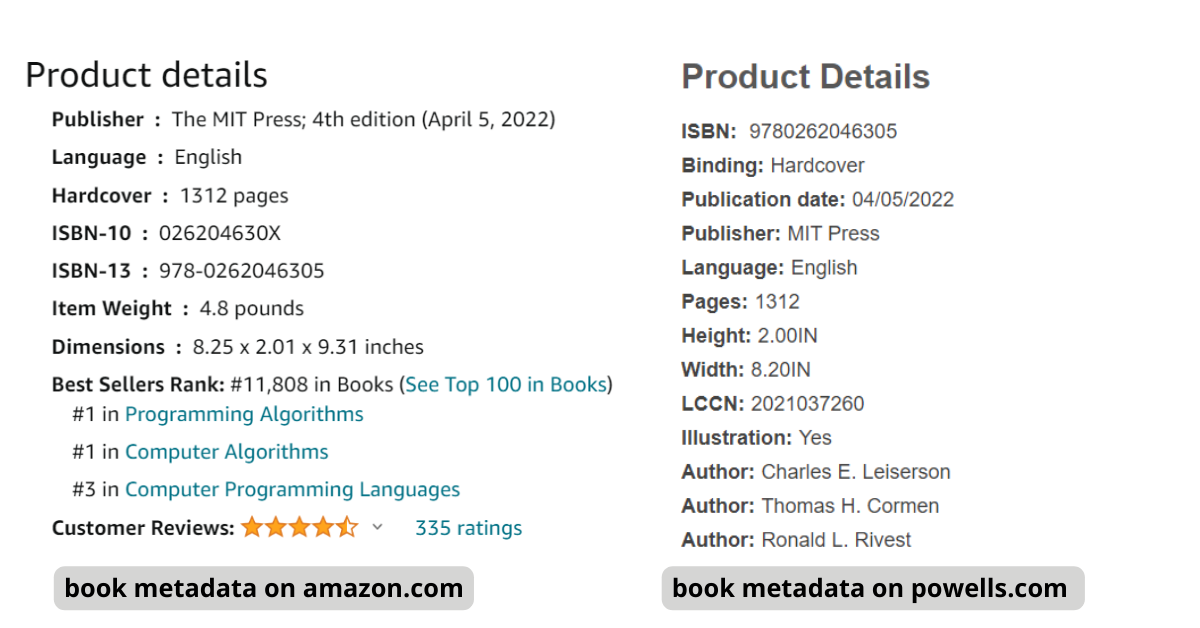
Here’s an example of how eBay displays book metadata on a book page.
eBay is an online marketplace where sellers can list and sell various products, including books—from rare, collectible, and out-of-print titles to common paperback thrift books.
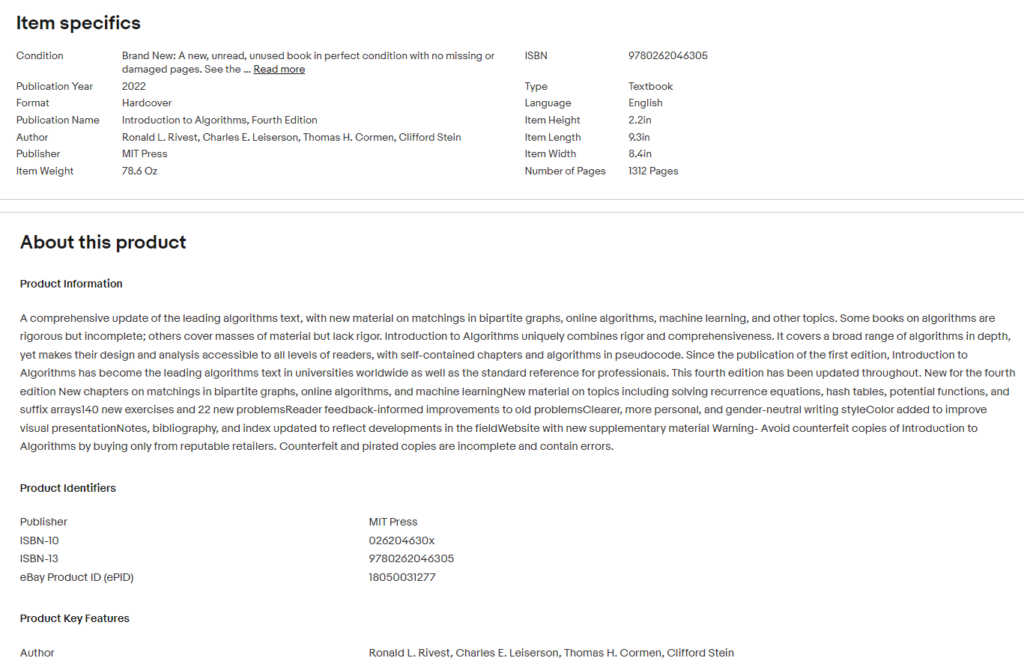
Here’s another example of a book metadata display, this time on BetterWorldBooks. It’s an online bookseller that aims to provide access to knowledge at an affordable price, promote literacy, support libraries, and protect the environment.

Here’s an example of a book metadata display from BooksRun, an online bookseller that offers affordable buying, selling, and renting services for books and textbooks.
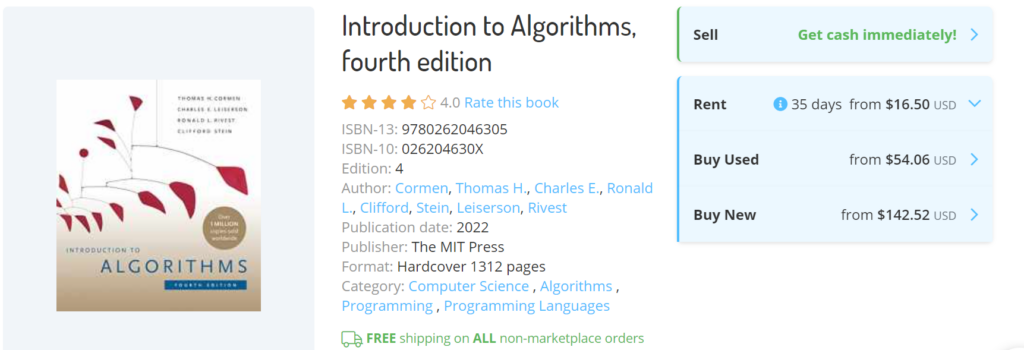
Finally, here is an example of how book metadata is displayed on CampusBooks, a price comparison platform for buying, selling, and renting new and used college textbooks.
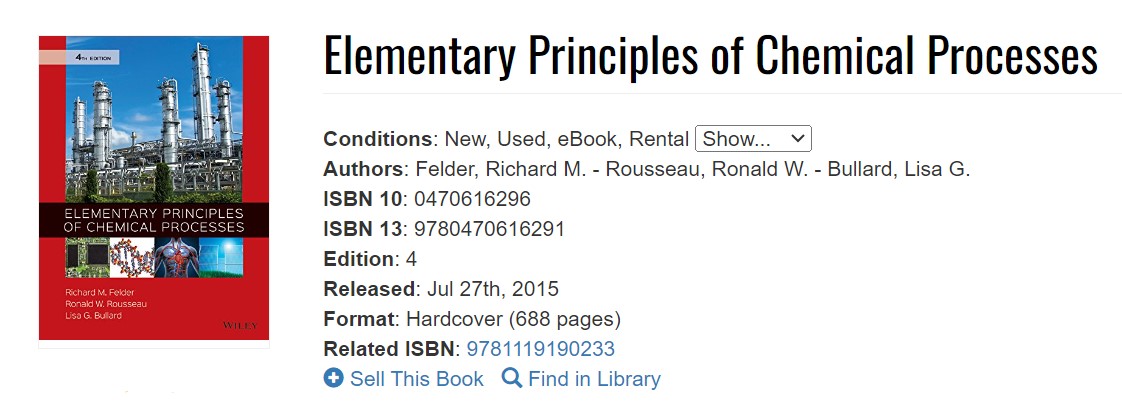
Are there any Book Metadata Standards?
Yes, there is an XML-based standard for book and other book-related product metadata called ONIX. Its format is used to maintain up-to-date title information on booksellers’ websites. The ONIX standard was introduced to address the industry’s need for more efficient communication of information about book titles.
Book Industry Study Group (BISG) maintains the standard. BISG is a non-profit membership organization, which includes publishers, manufacturers, wholesalers, libraries, and other book industry representatives.
Usually, an ONIX record includes the following book data:
- Title
- Author
- ISBN
- Price
- Availability
- Blurb, reviews, and extracts
- BISAC Subject Codes
- Territorial rights
- Links to website and book cover images
- Etc.
The introduction of ONIX for Books put an end to multiple data formats and made the distribution of book metadata between publishers and book distributors much easier.
ONIX for Books is used by major US book industry players like:
- Amazon
- American Booksellers Association (ABA)
- Association of American Publishers (AAP)
- Association of American University Presses (AAUP)
- American Wholesale Booksellers Association
- Baker & Taylor
- Barnes & Noble
- Bowker
- Evangelical Christian Publishers Association (ECPA)
- Hachette Book Group
- Harcourt Trade Publishing
- HarperCollins Publishers
- Ingram Book Company
- Library of Congress
- McGraw-Hill Companies
- MUZE, Inc.
- Nielsen BookScan
- Penguin Group (USA)
- Rowman & Littlefield Publishing Group
- Simon and Schuster
How is Book Metadata Distributed?
Regardless of size, all publishers need to provide metadata for their books from time to time.
When passing information about a new book to Amazon or Bowker, you can create an ONIX record and manually send it by email or upload via FTP. The process may take quite a while to get it right though, since ONIX syntax and rules are quite difficult to get used to. You can see an example of an ONIX file here.
You can save yourself quite a lot of time and headache by using a third-party service to generate and transmit ONIX files. Many US publishers use Eloquence on Demand, which offers a user-friendly interface for creating, managing, and distributing book metadata.
Please be aware that it’s critical to provide accurate and complete book metadata when uploading book files for print, applying for your ISBN, etc. Based on the Nielsen Book US Study, books that have complete metadata tend to sell an average of 75% more than those that lack complete metadata.
Where Do You Get Metadata From?
Book metadata is typically obtained from book databases, such as ISBNdb, Bowker, Ingram, Open Library, WorldCat, Amazon Books (for affiliate partners), or Google Books.
ISBNdb was founded in 2001 and has been meticulously collecting book information since that time. As of this writing, we’ve compiled a database of more than 43 million book titles from 11+ million authors. For each book, you can get up to 19 data points – ISBN10, ISBN13, title, author, publication date, publisher, Dewey decimal number, weight, subject, and so on.
You can rest assured, we don’t dwell on previous achievements – tens of thousands of new records are added to our database every day.
ISBNdb is your reliable partner for book metadata. We offer several subscription options, depending on your needs. Please choose the one that suits you best on the ISBN database page.
Final Thoughts
It’s impossible to overstate the meaning of metadata for book businesses. That’s why the main purpose of this article is to emphasize the importance of book metadata for the success of your book-related business and provide you with a solution to manage it. Feel free to read more about the history and importance of book metadata in our article.


